Health
-

Break in the case for long COVID investigators
Research highlighting chronic inflammation opens path to treating illness that affects millions of Americans

-

The problem with the school smartphone debate
Study finds most districts already regulate devices. Is the real issue enforcement?

-
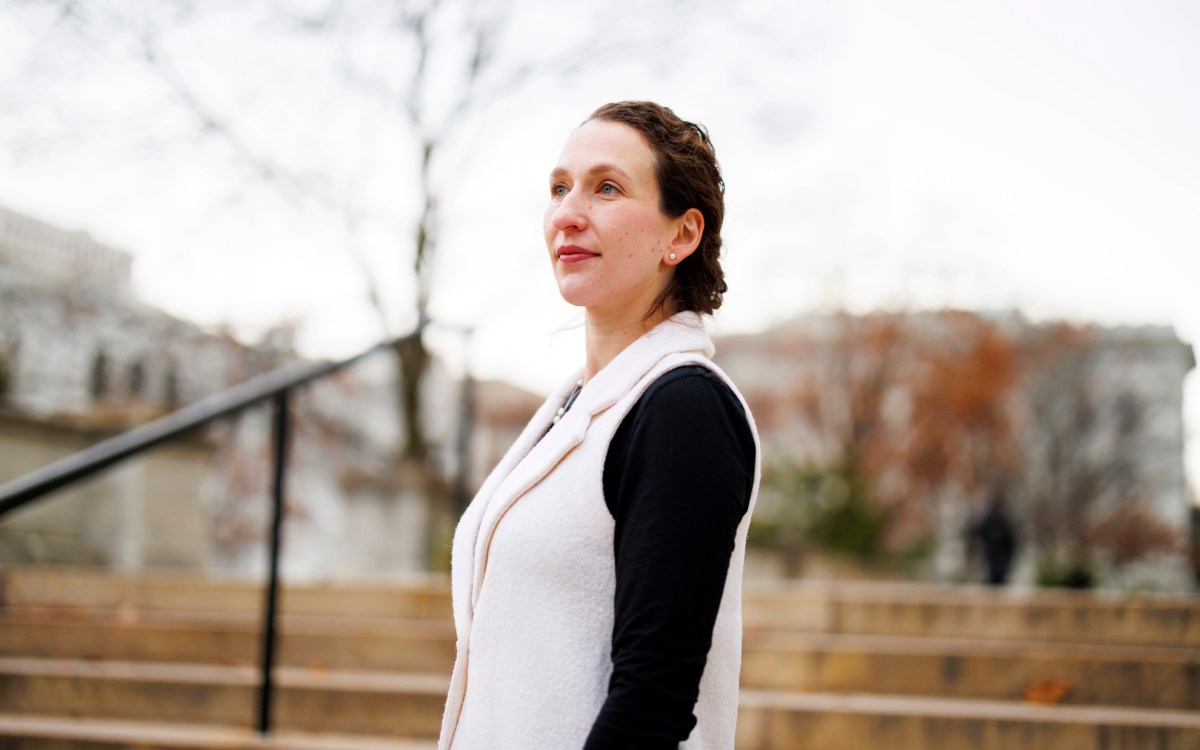
Just who gets a say at FDA public drug-approval hearings?
New research shows negative voices are relatively rare in drug approval hearings.
-

Your digital twin might save your life
AI, statistics offer new possibilities for personalized medicine
-

Time to legalize psychedelics?
Campus debate weighs therapeutic need vs. safety questions
-

How a toxin from the gut microbiome may help spark colorectal cancer
Findings suggest colibactin may be promising target for disease prevention

-
Reaping benefits of exercise minus the sweat
A team led by researchers at Harvard-affiliated Dana-Farber Cancer Institute has isolated a natural hormone from muscle cells that triggers some of the key health benefits of exercise.

-
Struttin’ its stuff
Harvard researchers have found that a tiny motor inside of us called dynein, one tasked with shuttling vital payloads throughout the cell’s intricate highway infrastructure, staggers, which is quite contrary to the regular, efficient poise of its fellow motors.
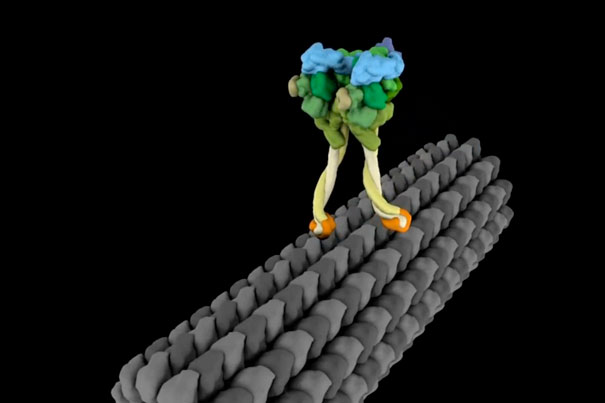
-
Nicotine letdown
Nicotine replacement therapies did not improve smokers’ chances of long-term cessation in a study by researchers at Harvard and UMass.

-
Age-related effects of MS may prove reversible
In a new study, Harvard stem cell researchers and scientists at the University of Cambridge have found that the age-related degeneration in conditions such as multiple sclerosis (MS) may be reversible.
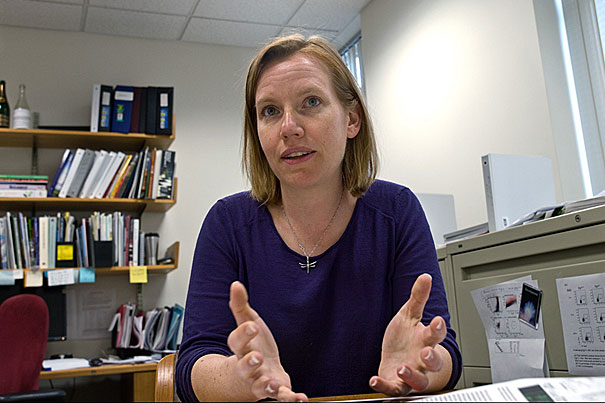
-
A possible aid for navigators
John Huth, the creator of the popular “Primitive Navigation” course, spent most of last summer investigating a mysterious phenomenon called “underwater lightning,” which some say can be used as a navigational tool.
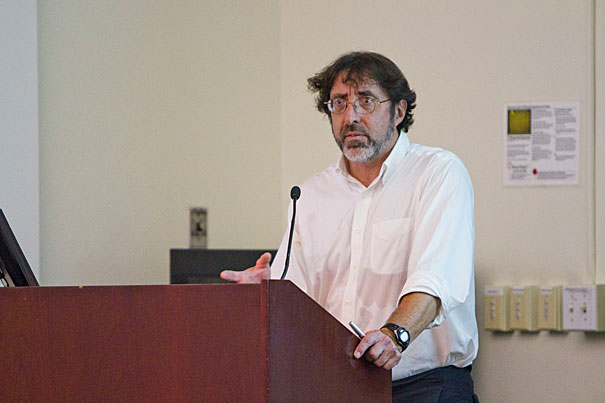
-
Use, abuse of Internet pharmacies
Efforts to halt the growing abuse of prescription drugs must include addressing the availability of these drugs on the Internet and increasing physician awareness of the dangers posed by Internet pharmacies.

-
Health reform in the crosshairs
With health care costs set to gobble up more of the federal budget, analysts say that additional reforms are inevitable, though national indecision over what they should look like could mean a rocky path ahead.
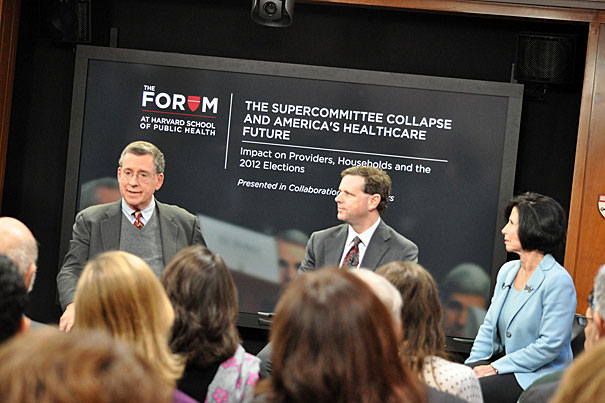
-
Slowing neurodegeneration in Huntington’s
Harvard researchers have found a treatment that increases brain levels of an important regulatory enzyme may slow the loss of brain cells that characterizes Huntington’s disease and other neurodegenerative disorders.
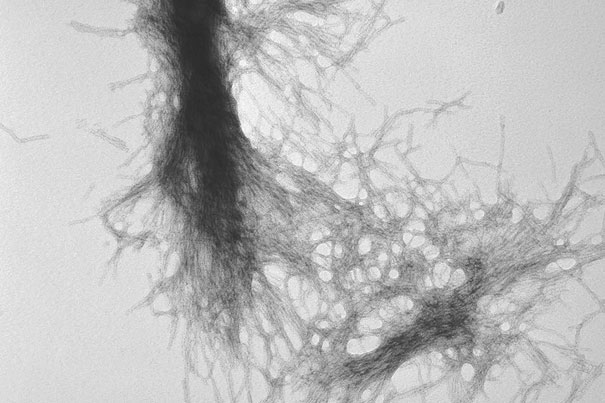
-
Why some TB cells resist antibiotics
A new study led by Harvard School of Public Health researchers provides a novel explanation as to why some tuberculosis cells are inherently more difficult to treat with antibiotics.
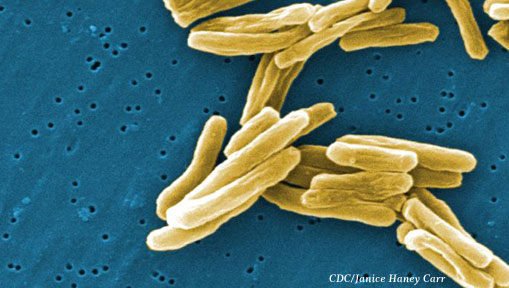
-
Relief for the weary
Ninety instructors and junior faculty members at Harvard Medical School have received fellowships from the Eleanor and Miles Shore 50th Anniversary Fellowship Program for Scholars in Medicine. The program provides grants for recipients to hire lab help or to gain protected time by easing clinical duties.

-
Harvard professors partner in unique approach
The first-of-its-kind strategy is credited for curing at least five of 10 children at a rural Rwandan hospital; two others are in remission while receiving chemotherapy, and three children have died. The long-distance team approach was designed by Harvard Medical School instructor in medicine Sara Stulac, director of pediatrics for Partners In Health.

-
The plight of adolescents, worldwide
Children and youths globally are suffering from neglect and abuse, living on the streets, being recruited into militias, and contracting serious ailments. A two-day conference examined the troubles facing the world’s adolescents.

-
Traumatic injury sets off a ‘genomic storm’
Harvard researchers are among a nationwide team that has found serious traumatic injuries, including major burns, set off a “genomic storm” in human immune cells, altering around 80 percent of the cells’ normal gene expression patterns.
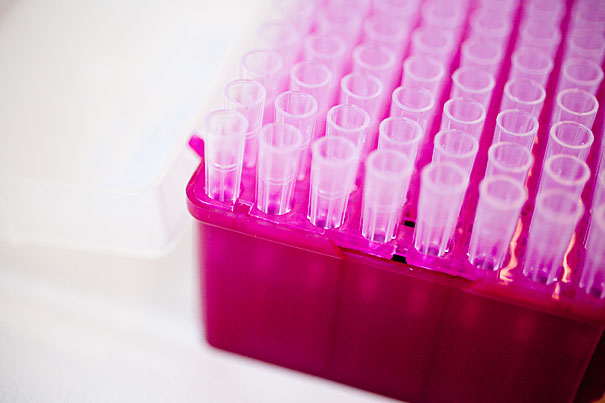
-
Plotting the demise of AIDS
Hundreds of scientists, activists, doctors, and others who have been on the front lines battling the HIV virus, gathered on Harvard’s Longwood campus for a conference reflecting on progress against the ailment, while rededicating themselves to end the epidemic.

-
A data bank to battle cancer
Researchers at Brigham and Women’s Hospital and the Dana-Farber Cancer Institute are collaborating on a massive, long-term effort to collect and analyze tumor tissue from 10,000 cancer patients annually. The researchers hope the data will enable them to understand better how tumors behave, while providing opportunities to test new therapies.

-
Worming out of listening
A freshman seminar helps students to understand Darwin by reading his works and re-creating 10 experiments — including one showing that the wiggly creatures just don’t hear.
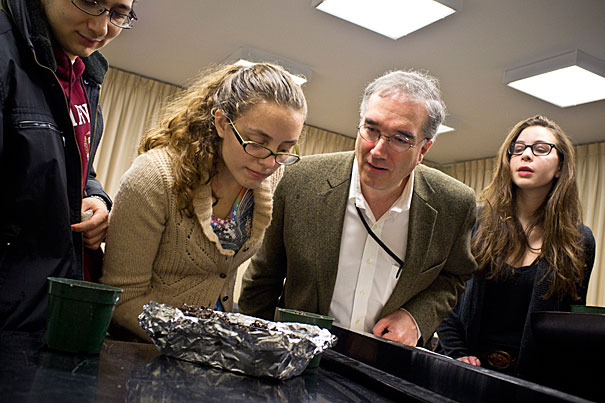
-
Relief for stem cell transplant patients
In a study that seems to pivot on a paradox, scientists at Harvard-affiliated Dana-Farber Cancer Institute have used an immune system stimulant as an immune system suppressor to treat a common, often debilitating side effect of donor stem cell transplantation in cancer patients. The effect, in some cases, was profound.

-
Guiding lights
In a scientific first that could shed light on how signals travel in the brain and how learning alters neural pathways, scientists at Harvard have created genetically altered neurons that light up as they fire. The work may also lead to speedier drug development.

-
Rebuilding the brain’s circuitry
Harvard scientists have rebuilt genetically diseased circuitry in a section of the mouse hypothalamus, an area controlling obesity and energy balance, demonstrating that complex and intricately wired circuitry of the brain long considered incapable of cellular repair can be rewired with the right type of neuronal “replacement parts.”
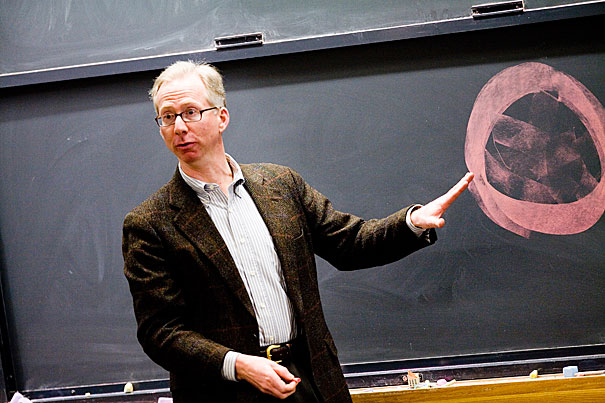
-
Alleviating radiation sickness
A combination of two drugs may alleviate radiation sickness in people who have been exposed to high levels of radiation, even when the therapy is given a day after the exposure occurred, according to a study led by scientists from Harvard-affiliated Dana-Farber Cancer Institute (DFCI) and Children’s Hospital Boston.
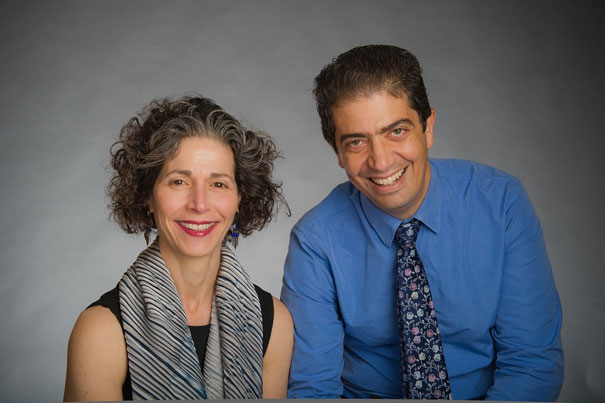
-
Canned soup linked to higher BPA levels
A new study from researchers at the Harvard School of Public Health has found that the volunteers who consumed a serving of canned soup each day for five days had a more than 1,000 percent increase in urinary bisphenol A (BPA) concentrations compared with the group who consumed fresh soup daily for five days. The study is one of the first to quantify BPA levels in humans after ingestion of canned foods.

-
Slowing ALS symptom progression
Harvard researchers find that treatment with dexpramipexole — a novel drug believed to prevent dysfunction of mitochondria, the subcellular structures that provide most of a cell’s energy — appears to slow symptom progression in the neurodegenerative disease amyotrophic lateral sclerosis (ALS).
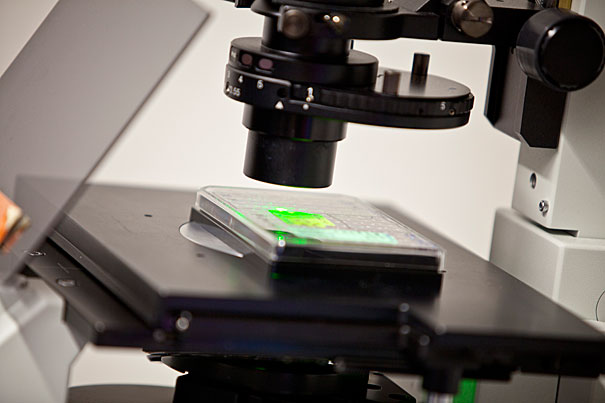
-
Actually, the star’s a turkey
Visiting Professor Pamela Diggle took listeners into the botanical roots of Thanksgiving dinner, illustrating how nature’s everyday trials forced plants to come up with unusual — and delicious — ways to survive.

-
Tailored to fit
The dramatic diversity of columbine flowers can be explained by a simple change in cell shape. To match the pollinators’ probing tongues, the flowers’ cells in floral spurs elongate, driving rapid speciation.

-
Following the clues
Researchers at Harvard Medical School and Children’s Hospital Boston have retraced the evolution of an unusual bacterial infection as it spread among cystic fibrosis patients by sequencing scores of samples collected during the outbreak, since contained.
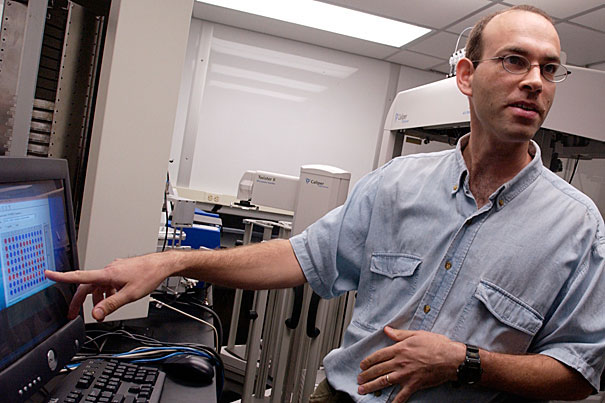
-
Impact of cutting co-pay on meds
Researchers from Harvard-affiliated Brigham and Women’s Hospital evaluated whether eliminating co-payments for specific medications following a heart attack would increase adherence and improve outcomes in patients.

-
Increasing risk for melanoma
A major international study has identified a novel gene mutation that appears to increase the risk of both inherited and sporadic cases of malignant melanoma, the most deadly form of skin cancer.
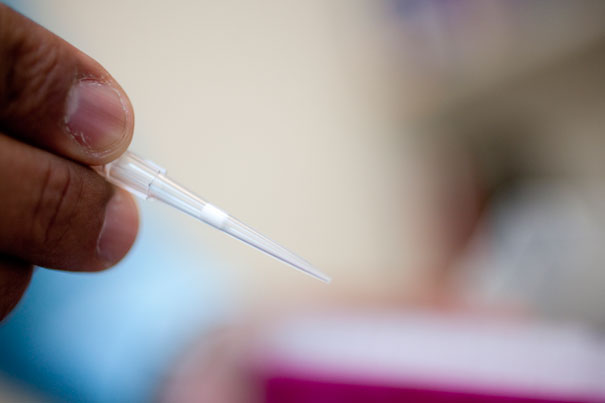
-
Cancer clues from another species
Researchers have decoded the genome of an unlikely ally in the fight against cancer and aging, the naked mole rat, to find clues on why it resists the disease and lives 10 times as long as ordinary mice.

-
Effective treatment of painkiller addiction
Individuals addicted to prescription painkillers are more likely to succeed in treatment with the aid of the medication buprenorphine-naloxone (Suboxone), report McLean Hospital and Harvard Medical School researchers.
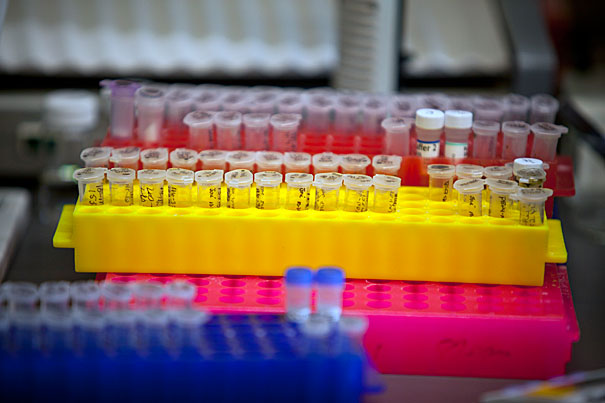
-
Why cooking counts
In a first-of-its-kind study, Harvard researchers have shown that cooked meat provides more energy than raw meat, a finding that challenges the current food labeling system and suggests humans are evolutionarily adapted to take advantage of the benefits of cooking.



